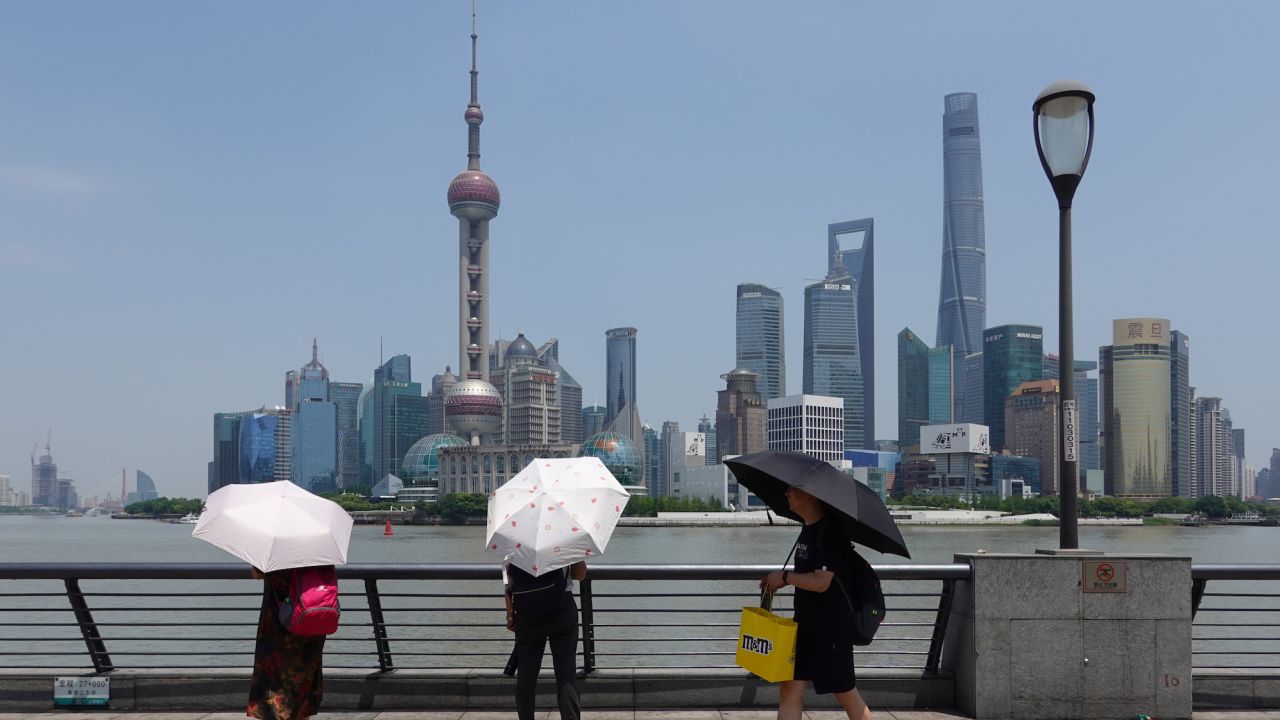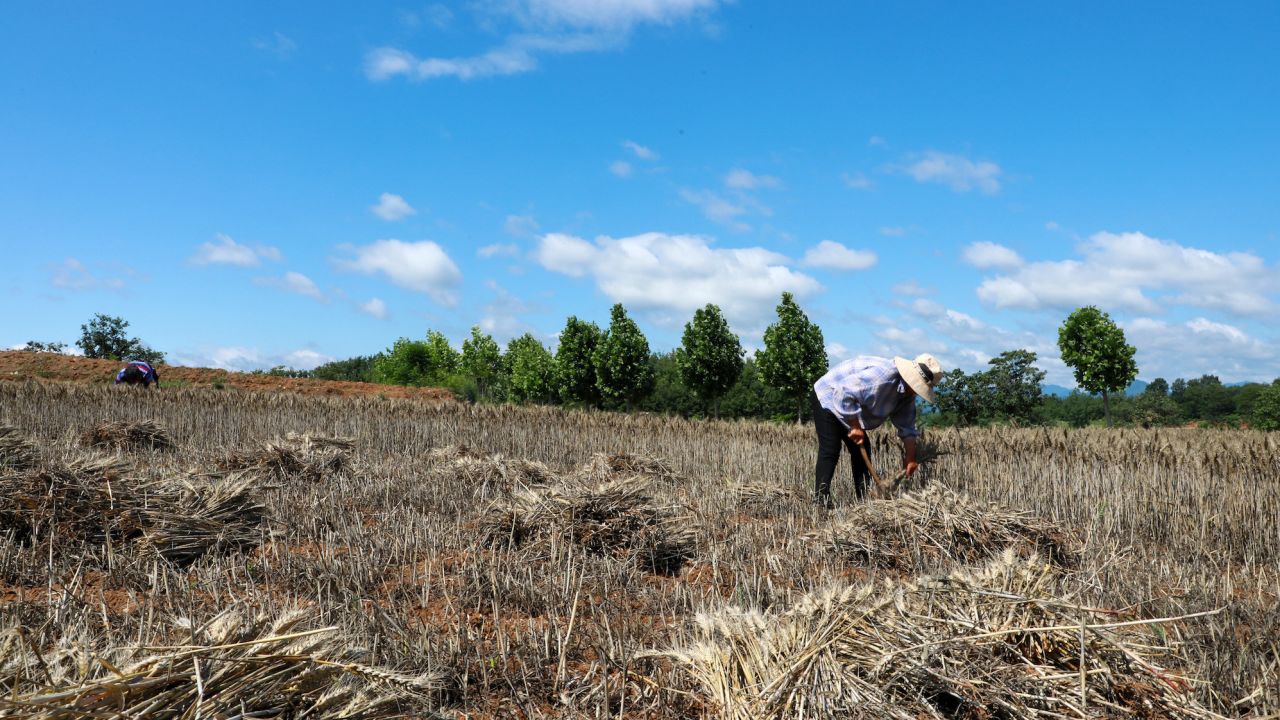Hong Kong
CNN
—
With parts of China experiencing record high temperatures and heavy rains, reports of farm animals and crops suffering from extreme weather patterns are dominating headlines in the country, raising concerns about food security in the world’s second largest economy.
China experienced its worst heat wave and drought in decades during the summer of 2022, which caused widespread power shortages and disrupted food and industrial supply chains. This year, extreme heat has ravaged many parts of the country even earlier than last year.
Pigs, rabbits and fish have been dying from the searing temperatures, and wheat fields in central China have been flooded by the heaviest rainfall in a decade. Meanwhile, officials are worried that drought could hit the Yangtze River basin, China’s main rice-growing region, in the coming months.
Since March, temperatures in dozens of Chinese cities have hit record seasonal highs. The heat wave has escalated in recent days, with a number of cities in Yunnan and Sichuan provinces suffering record-breaking temperatures above 40 degrees Celsius or 104 degrees Fahrenheit.
By Wednesday, 578 national weather stations located in different cities across the country recorded their highest ever temperatures for this time of year, according to the China Meteorological Administration.
“Extreme weather such as drought and floods may disrupt the food production order and bring more uncertainties to the supply of food and oil,” Sheng Xia, chief agricultural analyst for Citic Securities, wrote in a research report on Wednesday.
He was warned of increasing threats to food security this year because of the looming El Niño, a natural phenomenon in the tropical Pacific Ocean that brings warmer-than-average temperatures. El Niño could, for the first time, push the world past 1.5 degrees Celsius of warming above the pre-industrial levels of the mid-to-late 1800s.
“For China, the El Niño event will easily lead to increased climate uncertainty in the Yangtze River Basin, causing flooding in the south and drought in the north, and cold summer in the northeast,” said Sheng.

Last month, the World Meteorological Organization said the likelihood of El Niño developing later this year was increasing.
following last year’s severe heat wave and drought, Beijing strengthened its focus on food security. In March, Chinese leader Xi Jinping said agriculture was the foundation of national security.
“Once something’s wrong with agriculture, our bowls will be held in someone else’s hands and we’ll have to depend on others for food. How can we achieve modernization in that case?” he said in an article published in March by Qiushi, the Communist Party’s main theoretical journal.
In recent days, reports of farm animals killed by extreme heat have dominated the news.
At a farm in eastern Jiangsu province, hundreds of pigs died this week after a sudden power outage caused fans to stop working at night, according to several state media reports.
The pigs suffocated to death amid extreme heat and poor air circulation, Jimu News, a government-owned news website, cited an unnamed employee at the farm as saying.
The heat wave was blamed for killing large numbers of farmed carp living in rice fields in the southwestern region of Guangxi. Villagers told the South of China Today newspaper on Wednesday that their fish were “burned to death” as water temperatures soared due to hot weather.
The prices of rabbit heads, a signature dish in Sichuan, have surged in recent days as high temperatures caused rabbit deaths on farms, resulting in a tighter supply. Spicy rabbit heads are a popular street food in the southwestern province, where residents consume more than 200 million heads a year, according to industry association figures.
Extreme weather conditions have also affected the country’s largest wheat-growing region.
Heavy rainfall flooded the wheat fields of Henan, a central province which accounts for a quarter of China’s production, in the last week of May, just days before harvest time. The rains caused some grain crops to sprout or go moldy. The ruined crop accounted for 20% of some farmers’ yields for the whole year, according to the state-run China Media Group.

It was said to be the worst rainfall taking place near harvest season in more than a decade. And more extreme weather events are likely to come.
From May to September, “drought and flooding might occur simultaneously,” with more extreme climate events such as heavy rainfall and heat waves hitting the country, according to a recent estimate by the national climate center.
Sheng noted that the heat wave and lack of rainfall in the far western region of Xinjiang had already affected some corn and wheat production.
In the next few months, precipitation in the middle reaches of the mighty Yangtze River, which bisects the country, may be significantly reduced, according to an official estimate. That could lead to a drought and affect the region’s rice crops, he said.
The Yangtze River basin provides more than two thirds of China’s rice, a major food staple at home and abroad.
